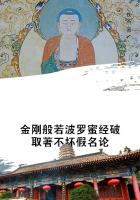Subjectivity signifies the lack of a firm and steady basis, but likewise the desire for such, and thus it evermore remains a yearning. These yearnings of a lofty soul are set forth in the writings of Novalis. This subjectivity does not reach substantiality, it dies away within itself, and the standpoint it adopts is one of inward workings and fine distinctions; it signifies an inward life and deals with the minuti? of the truth. The extravagances of subjectivity constantly pass into madness; if they remain in thought they are whirled round and round in the vortex of reflecting understanding, which is ever negative in reference to itself.
d. Fries, Bouterweck, Krug.
Yet a last form of subjectivity is the subjectivity of arbitrary will and ignorance. It maintained this, that the highest mode of cognition is an immediate knowledge as a fact of consciousness; and that is so far right. The Fichtian abstraction and its hard understanding has a repellent effect on thought;slothful reason allowed itself to be told the result of the philosophy of Kant and Jacobi, and renounced all consistent thought, all construction. This arbitrariness gave itself entire liberty - the liberty of the Tabagie - but in doing so it regarded itself from a poetic or prophetic point of view, as we have just seen (pp. 508, 509). Then it was both more sober and more prosaic, and thus brought the old logic and metaphysic once more into evidence, though with this modification that they are made facts of consciousness. Thus Fries turns back to the faith of Jacobi in the form of immediate judgments derived from reason, and dark conceptions incapable of utterance.(33) He wished to improve the critique of pure reason by apprehending the categories as facts of consciousness; anything one chooses can in such a case be introduced. Bouterweck speaks of “The virtue, the living nature of power, the fact that subject and object are regarded as one, that is as absolute virtue. With this absolute virtue we have all Being and action, namely the eternal, absolute and pure unity; in one word we have grasped the world within us and we have grasped ourselves in the world, and that indeed not through conceptions and conclusions, but directly through the power which itself constitutes our existence and our rational nature. To know the All, or indeed to know God in any way, is however, impossible for any mortal.” (34) Krug wrote a “Groundwork of Philosophy,” setting forth a “Transcendental Synthesis - that is a transcendental realism and a transcendental idealism inseparably bound together.” It is an “original, transcendental synthesis of the real and the ideal, the thinking subject and the corresponding outer world;” this transcendental synthesis must “be recognized and asserted without any attempt being made at explaining it.” (35)1. Fichte: Grundlage der gesammten Wissenschaftslehre (Leipzig, 1794), Preface, p. xii.
2. Fichte's Leben und Briefwechsel, edited by his son, Pt. I. pp. 3, 6, 24 seq.; 38 seq.; 142, 189;337, 338, 348, 349, 353, 354, 358-364; Pt. II. pp. 140-142; Pt. I. pp. 370-372, 442-448, 455;518, 540; 578.
3. Fichte's posthumous works, which were not published until after Hegel's death, nevertheless show that the writer in his lectures at the Berlin University likewise worked out scientifically this newly developed point of view in his philosophy; Fichte made a beginning in this regard brocheven in the ure which appeared in 1810: “Die Wissenschaftslehre in ihrem allgemeinen Umrisse” (v.
Michelet: Geschichte der letzten Systeme der Philosophie, Pt. I. pp. 441, 442). [Editor's note.]
4. Fichte: Grundlage der gesammten Wissenschaftslehre, pp. 10-12.
5. Fichte: Grundlage der gesammten Wissenschaftslehre, pp. 13, 14.
6. Fichte: Ueber den Begriff der Wissenschaftslehre (Weimar, 1794), p. 12.
7. Fichte: Grundlage der ges. Wissenschaftsl., Preface, pp. x., xi.
8. Fichte: Grundlage der gesammten Wissenschaftslehre, pp. 184, 185.
9. Fichte: Grundlage der gesammten Wissenschaftslehre, p. 3.
10. Cf. Fichte: Ueber den Begriff der Wissenschaftslehre, pp. 13-17, 19-39, 50-52.
11. Fichte: Grundlage der gesammten Wissenschaftslehre, pp. 4, 5.
12. Grundlage der gesammten Wissenschaftslehre, pp. 23, 5, 15, 17, 8.
13. Fichte: Grundlage der ges. Wissenschaftslehre, pp. 17, 19-22.
14. Fichte: Grundlage der gesammten Wissenschaftslehre, pp. 34, 31, 23, 27-30 (52), 14, 18.
15. Ibidem, pp. 52-56, 74.
16. Fichte's Anweisung zum seligen Leben, pp. 80-82.
17. Fichte: Grundlage der gesammten Wissenschaftslehre, p. 57.
18. Fichte: Grundlage der gesammten Wissenschaftslehre, pp. 78, 79.
19. Fichte: Grundlage der gesammten Wissenschaftslehre, pp. 60, 67, 59, 76.
20. Ibidem, pp. 121, 122.
21. Fichte: Grundlage der gesammten Wissenschaftslehre, pp. 194-197, 204, 221, 222.
22. Ibidem, p. 228.
23. Fichte: Grundlage der gesammten Wissenschaftslehre, pp. 225, 229, 232.
24. Fichte: Grundlage der gesammten Wissenschaftslehre, pp. 233, 238, 239.
25. Fichte: Grundlage der gesammten Wissenschaftslehre, pp. 302, 246, 247.
26. Ibidem, p. 273.
27. Fichte: Ueber den Grund unseres Glaubens an eine g?ttliche Weltregierung (Fichte's Leben, Part II.), p. 111.
28. Fichte: Verantwortungsschreiben gegen die Anklage des Atheismus, pp. 51, 53.
29. Fichte: Grundlage des Naturrechts (Jena und Leipzig, 1796), Part I. pp. 55-71.
30. Ibidem, pp. 78-82.
31. Fichte: Grundlage des Naturrechts, Part II. p. 21.
32. Rixner: Handbuch d. Gesch. d. Phil. Vol. III., § 192, p. 416; Fichte: Ueber das Wesen des Gelehrten (Berlin, 1806), pp. 4, 5, 15, 25-27.
33. Rixner: Handbuch d. Gesch. d. Phil. Vol. III. § 158, pp. 350, 351; Fries: Neue Kritik d.
Vernunft (First edition, Heidelberg, 1807), Vol. I. pp. 75, 281, 284, 343; 206.
34. Rixner: Handbuch d. Gesch. d. Phil. Vol. III. § 156, pp. 347, 348; cf. Bouterweck's Apodiktik (1799), Part II. pp. 206-212.














